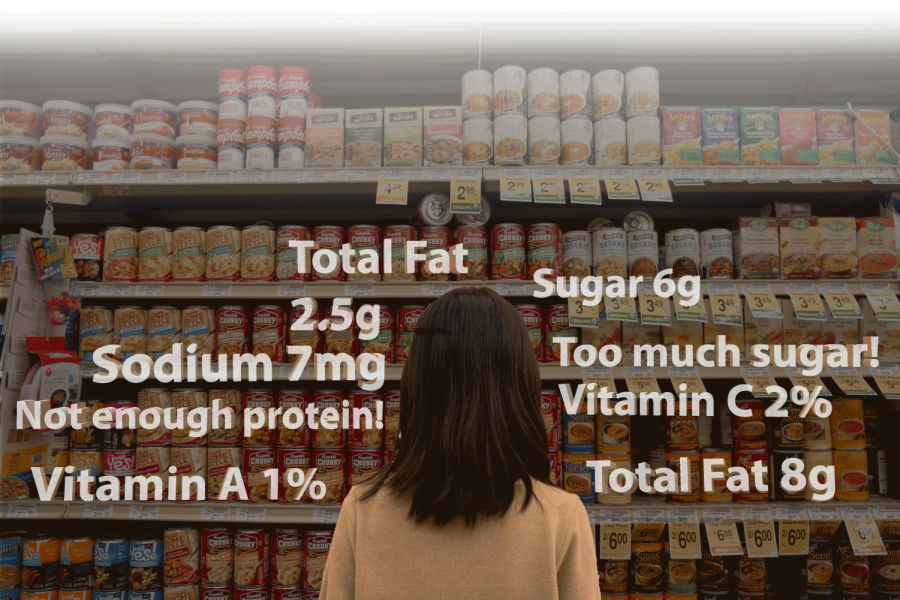Orthorexia: When Healthy Eating Becomes Toxic
May 24, 2018
In a media culture where various diet trends and exercise regimens are easily accessible, orthorexia, defined as an obsession with proper or “healthy” eating, has become increasingly prevalent and dangerous. What can so easily begin as well-intentioned efforts to be healthier and develop more mindful eating habits can become obsessive, psychologically and physically damaging.
Though not formally recognized by the Diagnostic and Statistical Manual, a book published by the American Psychiatric Association that identifies and provides diagnostic criteria for mental disorders, orthorexia can have permanent negative effects. The effects of orthorexia mimic the long-term consequences of other eating disorders, such as anorexia and bulimia, and the disorder may eventually lead to problems such as infertility, kidney failure and the loss of bone density.
“Many people think that this manifestation of undernourishment is not as dangerous or life threatening as other eating disorders, especially because it appears that people are simply eating ‘healthy,’” said Kristine Luce, a psychologist and Clinical Associate Professor at the Department of Psychiatry and Behavioral Sciences at Stanford University School of Medicine. “[Eating disorders are] much more complicated. People [with eating disorders] begin to fear food, eating and fat. When people are underweight, it takes about 18 months after returning to a healthy weight for people to see their own body size and shape accurately.”
Orthorexia is usually categorized as either a stand-alone eating disorder or a variation of anorexia nervosa or obsessive-compulsive disorder (OCD). The term, derived from the Greek word “orthos,” meaning correct, is analogous to the disorder’s symptoms of perfectionism and cognitive rigidity. Those who suffer from orthorexia are often obsessed with healthy eating, and symptoms can range from an increasing concern about the nutrition of ingredients to showing distress when healthy foods are unavailable.
“I think orthorexia isn’t recognized by the DSM yet because no one can yet accurately describe what it is,” said host of the Finding our Hunger podcasts, and former recovery coach Kaila Prins. ”In addition, ‘eating healthily’ is still lauded in a lot of medical circles, and many people don’t see the distinction between following a rigidly ‘clean’ diet and a mental health disorder.”
While many of orthorexia’s symptoms parallel with those of OCD and anorexia, certain aspects of orthorexia differentiate it from OCD and anorexia. Although both anorexia and orthorexia can cause extremely restrictive eating habits that may lead to severe malnutrition, anorexia is characterized by a focus on the effects of food on body image, while orthorexia is characterized by an obsession with the effects of food on one’s health. Furthermore, although people with OCD and orthorexia exhibit similar behaviors, orthorexia is specifically an obsession with healthy eating and an eating disorder, while OCD is a broader term that covers a wide range of behaviors and obsessions. Orthorexia is considered similar to OCD because both of the disorders’ symptoms consist of obsessive thoughts and compulsive behaviors.
The clean eating obsession has been interpreted as an ideal of purity within a world of nutritionally substandard food. Historically, wealthier nations have developed a better understanding of the ramifications of mass production of food, causing a collective anxiety around diet. In response, some individuals have offered approaches to food that assure wellness and health, coining the term “clean eating,” associated with a myriad of diets. Such an idea of wellness began to spread rapidly through social media platforms, such as Instagram, where hashtags such as #eatclean have been trending.
“I have so many friends who choose to skip meals or will make drastic changes to their diet to lose weight,” said senior Raksha Narasimhan. “I jumped into the trend of clean eating a few years ago, using healthy food choices as a means of insatiably trying to better my body image. ”
The recent increase of orthorexia cases may be a result of the increasing social media influence. According to a 2017 study conducted by Pixie Turner and Carmen Levefre of the University College London, increased exposure to and usage of Instagram correlated with higher orthorexic tendencies, affirming that healthy food and lifestyle trends promoted on social media channels can affect an individual’s psychological well-being. Instagram “influencers” promote healthy food movements through an image-based platform that may proliferate advice that fosters mental disorders regarding food.
“We see people getting rich off of diet cookbooks or ‘foodie’ Instagram accounts,” said Prins As language around fatness gets increasingly ominous, people get scared and go to the opposite extreme. When people get rewarded for being ‘good,’ or restrictive, through money and social capital, they are more likely to want to keep getting rewarded. And you have to go to greater and greater extremes to reap more rewards over time.”
When an interest in the nutrition of spirals into obsessive, restrictive behaviours regarding food, it can become life-threatening and physically dangerous. With increasing access to social media promotion of different diets and clean-eating regimens, drawing the line between healthy and obsessive has now become overwhelmingly important.
“It comes down to this: Is this disrupting your life or the lives of the people around you? Does the thought of eating certain foods give you anxiety? Have you changed your activities to avoid eating certain foods?” said Prins. “Sometimes it’s hard to notice it in yourself, specifically because people may be validating your behaviors, but if it’s disrupting your life, then it might be time to take a step back and ask whether you’re truly contributing to your health or taking away from it.”





























































